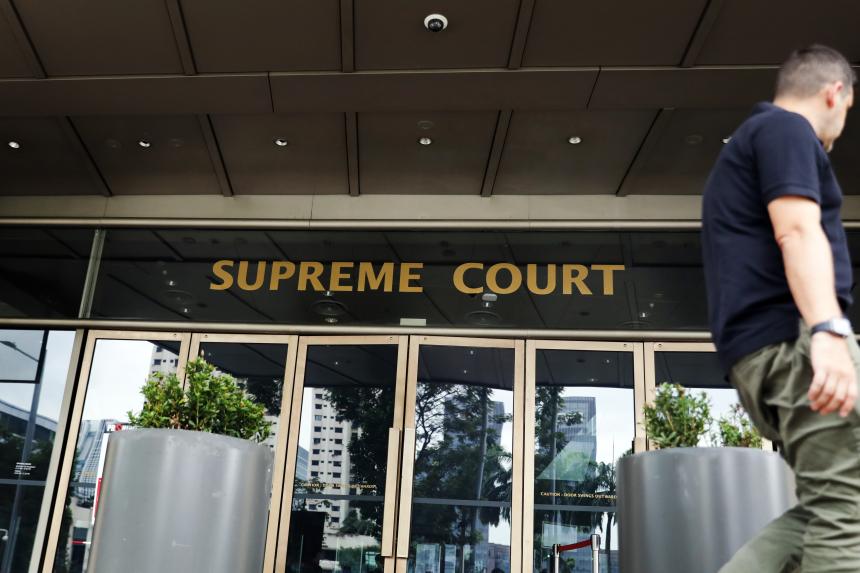SINGAPORE – The High Court has struck out a constitutional challenge against two new provisions in the law that aim to prevent death row inmates from abusing the court process to delay their executions.
The challenge was brought by 36 prisoners facing the death sentence, most of whom are convicted drug traffickers. They also include Iskandar Rahmat, who was convicted of the 2013 Kovan double murder, and Teo Ghim Heng, who strangled his pregnant wife and daughter in 2017.
The case relates to the Post-Appeal Applications in Capital Cases Act (Pacc Act), which was enacted in 2022 to introduce a new procedure for certain applications made by death row inmates after their avenues of appeal have been exhausted.
The procedure is set out in new provisions under the Supreme Court of Judicature Act.
The Pacc Act has not come into force, and these provisions are not yet operative.
The 36 inmates, who are not represented by a lawyer, argued that two of the provisions were “onerous”, “oppressive” and inconsistent with the rights to a fair trial and access to justice contained in Article 9 of the Constitution.
They also argued that the provisions were inconsistent with Article 12 of the Constitution, which guarantees equality before the law.
Under the new procedure, an inmate who has exhausted his avenues of appeal must obtain permission from the Court of Appeal before he can file an application to stay his execution. The inmates challenged a provision which states that in deciding whether to grant permission, the court must consider whether the prisoner’s intended application “has a reasonable prospect of success”.
In a brief affidavit filed on behalf of the 36 inmates, convicted heroin trafficker Masoud Rahimi Mehrzad said: “This condition denies an applicant recourse to the processes of the court on grounds of a predictive exercise at the outset of the proceedings.”
The inmates also challenged a provision that allows the court to summarily dismiss the application for permission without a hearing.
Masoud said: “This prevents the applicant from addressing the court or effectively (canvassing) his arguments before the court on an application upon which his life hinges.”
The Attorney-General had applied to strike out the challenge, arguing that the case was a non-starter because the Pacc Act has yet to come into force, which means the provisions do not currently affect the inmates.
Therefore, they are unable to show an “actual or arguable” violation of their rights, and have no legal standing to bring the challenge.
The Attorney-General also argued that the provisions are clearly consistent with the Constitution and, thus, the challenge contains no viable claim.
In a written judgment on Dec 5, Justice Hoo Sheau Peng agreed that the 36 inmates had no legal standing.
Given that the provisions do not as yet have legal effect, she found that they did not engage the inmates’ rights. Justice Hoo said the prospect of the Pacc Act becoming operative in the future was not enough to establish legal standing.
She said the new procedure is meant to provide a clear procedure for further applications taken out after appeals have been exhausted while implementing features to sift out unmeritorious applications.
Viewed in this context, it cannot be said to violate Article 9, she said.
She concluded that the new procedure is consistent with Article 12, rejecting the inmates’ argument that prisoners facing capital punishment were being singled out.
Justice Hoo said death row inmates are a class of prisoners who have an incentive to file last-minute applications to re-litigate matters, with the aim of delaying the carrying out of their scheduled sentences.
She noted there have been recent instances of them doing so, as compared with other prisoners facing non-capital sentences, and it is clear that the purpose of the Pacc Act is to address this.


